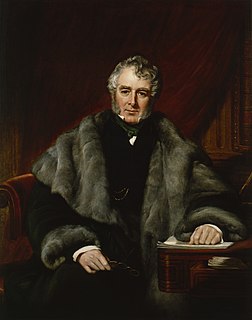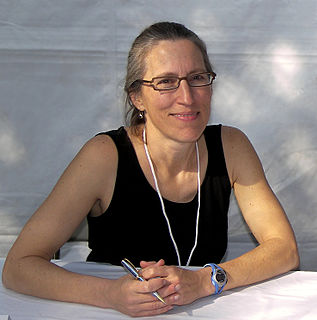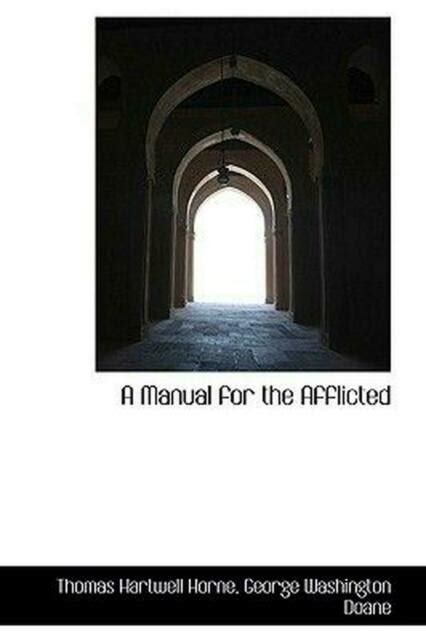Top 341 Idleness Quotes & Sayings - Page 6
Explore popular Idleness quotes.
Last updated on September 19, 2024.
Industry need not wish, and he that lives upon hopes will die fasting. There are no gains without pains. He that hath a trade hath an estate, and he that hath a calling hath an office of profit and honor; but then the trade must be worked at and the calling followed, or neither the estate nor the office will enable us to pay our taxes. If we are industrious, we shall never starve; for at the workingman's house hunger looks in, but dares not enter. Nor will the bailiff or the constable enter, for industry pays debts, while idleness and neglect increase them.
Why, man of idleness, labor has rocked you in the cradle, and nourished your pampered life; without it, the woven silk and the wool upon your bank would be in the shepherd's fold. For the meanest thing that ministers to human want, save the air of heaven, man is indebted to toil; and even the air, in God's wise ordination, is breathed with labor.
Provide yourself with such work for your hands as can be done, if possible, both during the day and at night, so that you are not a burden to anyone, and indeed can give to others, as St. Paul the Apostle advises (cf. I Thess. 2:9; Eph. 4:28). In this manner you will overcome the demon of listlessness and drive away all the desires suggested by the enemy; for the demon of listlessness takes advantage of idleness. 'Every idle man is full of desires' (Prov. 13:4 LXX).
Organisation of social insurance should be treated as one part only of a comprehensive policy of social progress. Social insurance fully developed may provide income security; it is an attack upon Want. But Want is one only of five giants on the road of reconstruction and in some ways the easiest to attack. The others are Disease, Ignorance, Squalor and Idleness.
The magical descriptions of Italy and hilarious observations about love, travel, natives and foreigners in Love in Idleness are but a few of its many pleasures. Amanda Craig has created a hot shimmery climate in which a cast of old friends, quirky family members and naughty children who make love potions come to know themselves and their hearts. A delightful brew.
Friends and neighbors complain that taxes are indeed very heavy, and if those laid on by the government were the only ones we had to pay, we might the more easily discharge them; but we have many others, and much more grievous to some of us. We are taxed twice as much by our idleness, three times as much by our pride, and four times as much by our folly.
It would be easy to show that at our present rate of progress the kingdoms of this world never could become the kingdom of our Lord and of His Christ. Indeed, many in the Church are giving up the idea of it except on the occasion of the advent of Christ, which, as it chimes in with our own idleness, is likely to be a popular doctrine. I myself believe that King Jesus will reign, and the idols be utterly abolished. . . . The Holy Ghost would never suffer the imputation to rest upon His holy name that He was not able to convert the world.
Beauty and art pervade all the business of life like a kindly genius, brightly adorning our surroundings whether interior or exterior, mitigating the seriousness of existence and the complexities of the real life, extinguishing idleness in an entertaining fashion, and, where there is nothing good to be achieved, filling the place of vice better than vice itself.
In such a world as ours the idle man is not so much a biped as a bivalve; and the wealth which breeds idleness, of which the English peerage is an example, and of which we are beginning to abound in specimens in this country, is only a sort of human oyster bed, where heirs and heiresses are planted, to spend a contemptible life of slothfulness in growing plump and succulent for the grave-worms' banquet.
All the capital employed in paper speculation is barren and useless, producing, like that on a gaming table, no accession to itself, and is withdrawn from commerce and agriculture where it would have produced addition to the common mass It nourishes in our citizens habits of vice and idleness instead of industry and morality It has furnished effectual means of corrupting such a portion of the legislature as turns the balance between the honest voters whichever way it is directed.
Timing is everything. Tell me how a young man spends his evenings and I will tell you how far he is likely to go in the world. The popular notion is that a youth's progress depends upon how he acts during his working hours. It doesn't. It depends far more upon how he utilizes his leisure...If he spends it in harmless idleness, he is likely to be kept on the payroll, but that will be about all. If he diligently utilizes his own time...to fit himself for more responsible duties, then the greater responsibilities - and greater rewards - are almost certain to come to him.
The day of my departure at length arrived. Clerval spent the last evening with us. He had endeavoured to persuade his father to permit him to accompany me and to become my fellow student, but in vain. His father was a narrow-minded trader, and saw idleness and ruin in the aspirations and ambition of his son. Henry deeply felt the misfortune of being debarred from a liberal education. He said little, but when he spoke I read in his kindling eye and in his animated glance a restrained but firm resolve not to be chained to the miserable details of commerce.
There are in France some fifty thousand young men of good birth and fairly well off who are encouraged to live a life of complete idleness. They must either cease to exist or must come to see that there can be no happiness, no health even, without regular daily labor of some sort... The need of work is in me.
When the perfect order prevails, the world is like a home shared by all. Leaders are capable and virtuous. Everyone loves and respects their own parents and children as well as the parents and children of others. The old are cared for, adults have jobs, children are nourished and educated. There is a means of support for all those who are disabled or find themselves alone in the world. Everyone has an appropriate role to play in the family and society. Devotion to public duty leaves no place for idleness. Scheming for ill gain is unknown. Sharing displaces selfishness and materialism.
Tis in ourselves that we are thus or thus. Our bodies are our gardens, to the which our wills are gardeners: so that if we will plant nettles, or sow lettuce, set hyssop and weed up tine, supply it with one gender of herbs, or distract it with many, either to have it sterile with idleness, or manured with industry, why, the power and corrigible authority of this lies in our wills.
If you write, good ideas must come welling up into you so that you have something to write. If good ideas do not come at once, or for a long time, do not be troubled at all. Wait for them. Put down little ideas no matter how insignificant they are. But do not feel, any more, guilty about idleness and solitude.
Surely nothing is more reproachful to a being endowed with reason, than to resign its powers to the influence of the air, and live in dependence on the weather and the wind, for the only blessings which nature has put into our power, tranquillity and benevolence. To look up to the sky for the nutriment of our bodies, is the condition of nature; to call upon the sun for peace and gaiety, or deprecate the clouds lest sorrow should overwhelm us, is the cowardice of idleness, and the idolatry of folly.
At first, when an idea, a poem, or the desire to write takes hold of you, work is a pleasure, a delight, and your enthusiasm knows no bounds. But later on you work with difficulty, doggedly, desperately. For once you have committed yourself to a particular work, inspiration changes its form and becomes an obsession, like a love-affair… which haunts you night and day! Once at grips with a work, we must master it completely before we can recover our idleness.
Four be the things I am wiser to know:
Idleness, sorrow, a friend, and a foe.
Four be the things I'd been better without:
Love, curiosity, freckles, and doubt.
Three be the things I shall never attain:
Envy, content, and sufficient champagne.
Three be the things I shall have till I die:
Laughter and hope and a sock in the eye.
Avoid idleness, and fill up all the spaces of thy time with severe and useful employment; for lust easily creeps in at those emptinesses where the soul is unemployed and the body is at ease; for no easy, healthful, idle person was ever chaste if he could be tempted; but of all employments, bodily labor is the most useful, and of the greatest benefit for driving away the Devil.
Dreaming is a form of action. Idleness is a form of action. The idle man stares at the sky and sees what constitutes our eternal ceiling. The sky is one of the things that constructs us, one of our constants. But it is not what people believe. I should like to close this circle by turning over in my bed and scrutinizing the stars.
Of the time that is allotted to man here on the earth there is none to lose or waste. After suitable rest and relaxation there is not a day, hour or minute that we should spend in idleness, but every minute of every day of our lives we should strive to improve our minds and to increase the faith of the holy Gospel, in charity, patience, and good works, that we may grow in the knowledge of the truth as it is spoken and prophesied of and written about.
In mortals there is a care for trifles which proceeds from love and conscience, and is most holy; and a care for trifles which comes of idleness and frivolity, and is most base. And so, also, there is a gravity proceeding from thought, which is most noble; and a gravity proceeding from dulness and mere incapability of enjoyment, which is most base.
It can be set down as a broad, general principle that we cannot indulge in idleness and abundance during both the first and second half of our life. Study, application, industry, enthusiasm while we are young usually enable us to enjoy life when we grow older. But unless we toil and strive and earn all we can in the first half, the second half of our life is liable to bring disappointment, discomfort, distress. The time to put forth effort is when we are most able to do it, namely, in the years of our greatest strength. The law of compensation hasn't ceased to function.
My days were not days of the week, bearing the stamp of any heathen deity, nor were they minced into hours and fretted by the ticking of a clock; for I lived like the Puri Indians, of whom it is said that "for yesterday, today, and tomorrow they have only one word, and they express the variety of meaning by pointing backward for yesterday forward for tomorrow, and overhead for the passing day." This was sheer idleness to my fellow-townsmen, no doubt; but if the birds and flowers had tried me by their standard, I should not have been found wanting.
Criticism is a study by which men grow important and formidable at very small expense. The power of invention has been conferred by nature upon few, and the labour of learning those sciences which may, by mere labour, be obtained, is too great to be willingly endured; but every man can exert some judgment as he has upon the works of others; and he whom nature has made weak, and idleness keeps ignorant, may yet support his vanity by the name of critic.
The safe and general antidote against sorrow is employment. It is commonly observed, that among soldiers and seamen, though there is much kindness, there is little grief; they see their friend fall without any of that lamentation which is indulged in security and idleness, because they have no leisure to spare from the care of themselves; and whoever shall keep his thoughts equally busy will find himself equally unaffected with irretrievable losses.
The archiepiscopal throne of Macedonius, which had been polluted with so much Christian blood, was successively filled by Eudoxus and Damophilus. Their diocese enjoyed a free importation of vice and error from every province of the empire; the eager pursuit of religious controversy afforded a new occupation to the busy idleness of the metropolis: and we may credit the assertion of an intelligent observer, who describes, with some pleasantry, the effects of their loquacious zeal.
I love idleness. I love to busy myself about trifles, to begin a hundred things and not finish one of them, to come and go as my fancy bids me, to change my plan every moment, to follow a fly in all its circlings, to try and uproot a rock to see what is underneath, eagerly to begin a ten-years' task to give it up after ten minutes: in short, to fritter away the whole day inconsequentially and incoherently, and to follow nothing but the whim of the moment.
Wine is the source of the greatest evils among communities. It causes diseases, quarrels, seditions, idleness, aversion to labor, and family disorders. . . . It is a species of poison that causes madness. It does not make a man die, but it degrades him into a brute. Men may preserve their health and vigor without wine; with wine they run the risk of ruining their health and losing their morals.
Idleness is often covered by turbulence and hurry. He that neglects his known duty and real employment naturally endeavours to crowd his mind with something that may bar out the remembrance of his own folly, and does any thing but what he ought to do with eager diligence, that he may keep himself in his own favour.
We do not admire, we hardly excuse, the fanatic who wrecks this world for love of the other. But what are we to say of the fanatic who wrecks this world out of hatred of the other? He sacrifices the very existence of humanity to the non-existence of God. He offers his victims not to the altar, but merely to assert the idleness of the altar and the emptiness of the throne. He is ready to ruin even that primary ethic by which all things live, for his strange and eternal vengeance upon some one who never lived at all.
It is a mighty error to suppose that none but violent and strong passions, such as love and ambition, are able to vanquish the rest. Even idleness, as feeble and languishing as it is, sometimes reigns over them; it usurps the throne and sits paramount over all the designs and actions of our lives, and imperceptibly wastes and destroys all our passions and all our virtues.
To maintain the harmony of authority and obedience, to chastise the proud, to protect the weak, to reward the deserving, to banish vice and idleness from his dominions, to secure the traveller and merchant, to restrain the depredations of the soldier, to cherish the labors of the husbandman, to encourage industry and learning, and, by an equal and moderate assessment, to increase the revenue, without increasing the taxes, are indeed the duties of a prince . . .
Four Seasons fill the measure of the year; There are four seasons in the mind of man: He has his lusty Spring, when fancy clear Takes in all beauty with an easy span: He has his Summer, when luxuriously Spring's honey'd cud of youthful thought he loves To ruminate, and by such dreaming high Is nearest unto heaven: quiet coves His soul has in its Autumn, when his wings He furleth close; contented so to look On mists in idleness—to let fair things Pass by unheeded as a threshold brook. He has his Winter too of pale misfeature, Or else he would forego his mortal nature.
... Oceanic malaise. I never saw anyone reading anything more demanding than a comic book. I never heard any youth express an interest in science or art. No one even talked politics. It was all idleness, and whenever I asked someone a question, no matter how simple, no matter how well the person spoke English, there was always a long pause before I got a reply, and I found these Pacific pauses maddening. And there was giggling but no humor - no wit. It was just foolery.
The time's come: there's a terrific thunder-cloud advancing upon us, a mighty storm is coming to freshen us up....It's going to blow away all this idleness and indifference, and prejudice against work....I'm going to work, and in twenty-five or thirty years' time every man and woman will be working.
Our rulers will best promote the improvement of the nation by strictly confining themselves to their own legitimate duties, by leaving capital to find its most lucrative course, commodities their fair price, industry and intelligence their natural reward, idleness and folly their natural punishment, by maintaining peace, by defending property, by diminishing the price of law, and by observing strict economy in every department of the state. Let the Government do this: the People will assuredly do the rest.


































